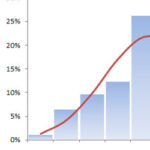News Category
Student motivation journal club: Supporting our students’ motivation in the era of COVID-19
Apr. 8, 2020—by Cynthia Brame, CFT associate director Our student motivation journal club is ending the academic year in the age of COVID-19 and all that implies: working from home, teaching and/or taking classes remotely, reading shifting but consistently bad news each day. We are learning how to negotiate challenges of spotty internet connection, kids and animals...
Inclusive and Equitable Teaching Online
Apr. 7, 2020—by Joe Bandy, CFT assistant director Teaching face-to-face presents many challenges, not least of which is the task of ensuring that all students feel belonging and have equal chances to thrive regardless of their abilities, identities, or perspectives. The online teaching environment suffers from all of the same obstacles to this and more, especially...
Teaching Innovations at Vanderbilt: Chad Carpenter and Multi-Step Class Problem Solving
Apr. 6, 2020—By Faith Rovenolt, CFT undergraduate intern During Spring 2020, the Teaching Innovations at Vanderbilt blog series will highlight teaching innovations that CFT staff have implemented and evaluated in their own courses. In teaching quantitative courses, it can be easy to fall into the trap of creating plug-and-chug problems for students. However, Chad Carpenter,...
Gathering feedback during remote teaching and learning: questions and tools to use
Apr. 5, 2020—by Cynthia Brame, CFT associate director As we head into our fourth week of remote teaching and learning at Vanderbilt, it’s a good idea for instructors to gather information from students about how they’re experiencing the shift. You may be doing that informally with your students by checking in via virtual office hours, email, and...
Teaching labs remotely
Apr. 3, 2020—by Cynthia Brame, CFT associate director As we start to prepare for teaching summer courses online, some instructors are making the shift toward teaching labs online. As many lab courses are designed to be about learning from hands-on, messy, real-world exploration, this shift can be a challenge. Use your goals as your guide One of...
Using OneNote to teach online
Mar. 30, 2020—by Elliott McCarter, Senior Lecturer in Hindi-Urdu, Asian Studies Program and 2019-2020 Junior Faculty Teaching Fellow at Vanderbilt University Upon being called to teach my courses online, I cringed at the thought of being chained to a computer for hours on end as I slowly typed everything in Hindi, Urdu, and Sanskrit. My strong desire...
Options for Assessing Student Learning When Teaching Online
Mar. 26, 2020—by Derek Bruff, CFT Director One of the important roles we play as instructors is assessing our students’ learning. Sometimes this assessment is formative, intended to provide us information about what and how our students are learning so we can be more responsive in what and how we teach them. Think of the problem sets or...
Gradescope grading tool for handwritten exams, lab reports, and more is free through June 30
Mar. 26, 2020—Gradescope is an online, FERPA compliant grading tool that professors can use to grade handwritten exams, typed homework assignments, lab reports and more. Gradescope works well for many types of questions: paragraphs, proofs, diagrams, fill-in-the-blank and true/false to name a few. Six Vanderbilt professors have been using it for over four years and are enthusiastic...
Finding and Using Open Educational Resources for Online Teaching
Mar. 25, 2020—by Derek Bruff, CFT Director Over the last three weeks, Center for Teaching staff members have produced a variety of resources for Vanderbilt instructors making the shift to alternative and online instruction. Some of those resources have focused on tools instructors can use to create learning materials for their students, including lecture videos, screencasts, and...
GoReact enables faculty and peers to give feedback on presentations
Mar. 25, 2020—Through June 30th, Vanderbilt faculty and students can use GoReact for free by signing up with a valid Vanderbilt email address. GoReact is a video feedback tool where students can upload videos and receive time-stamped feedback from both instructors and peers. This tool is useful for when you need to give feedback on student presentations,...







![Open Educational Resources [logo]](https://cdn.vanderbilt.edu/vu-sub/wp-content/uploads/sites/59/2020/03/19134135/500px-OER_Logo.svg_-150x150.png)

